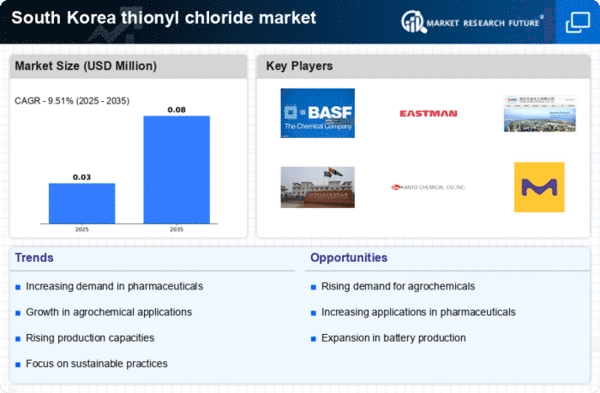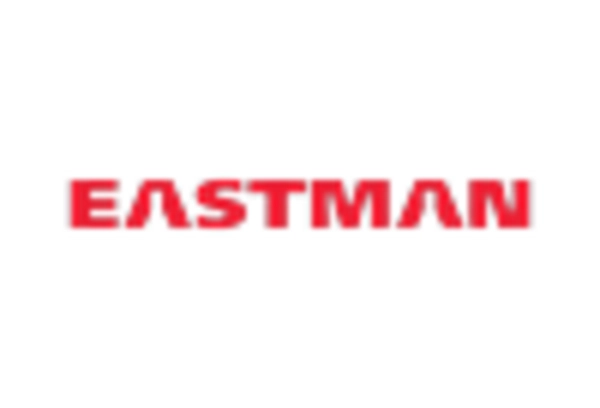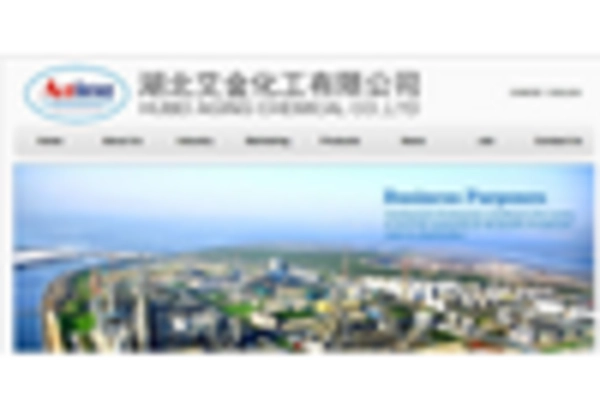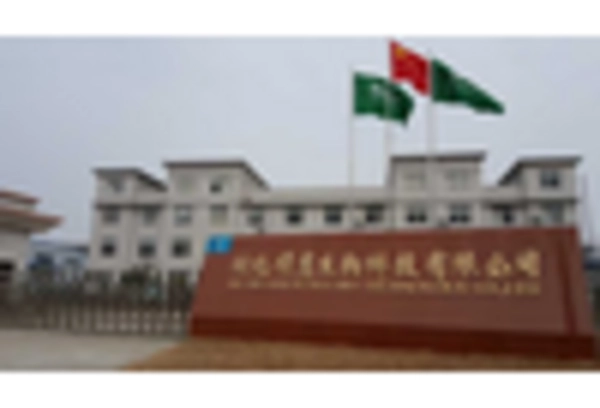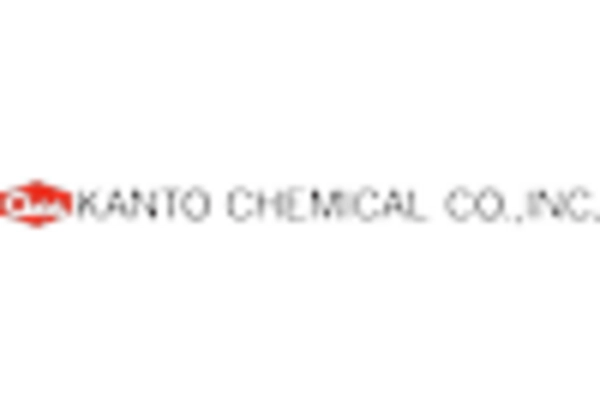The thionyl chloride market exhibits a competitive landscape characterized by a blend of established players and emerging companies, driven by increasing demand in various applications such as pharmaceuticals, agrochemicals, and specialty chemicals. Key growth drivers include the rising need for efficient chemical synthesis and the expansion of the pharmaceutical sector in South Korea. Major companies like BASF SE (Germany), Eastman Chemical Company (US), and Merck KGaA (Germany) are strategically positioned to leverage their extensive R&D capabilities and global supply chains, thereby enhancing their operational focus on innovation and sustainability. Their collective strategies foster a competitive environment that emphasizes technological advancement and market responsiveness.In terms of business tactics, companies are increasingly localizing manufacturing to reduce lead times and optimize supply chains. The market structure appears moderately fragmented, with a few dominant players holding substantial market shares while several smaller firms contribute to niche segments. This fragmentation allows for a dynamic competitive atmosphere where agility and responsiveness to market changes are crucial for success.
In October BASF SE (Germany) announced the expansion of its production capacity for thionyl chloride at its facility in South Korea, aiming to meet the growing demand from the pharmaceutical sector. This strategic move underscores BASF's commitment to enhancing its market presence and ensuring supply chain reliability, which is vital in a market that is increasingly focused on sustainability and efficiency.
In September Eastman Chemical Company (US) launched a new line of thionyl chloride derivatives designed for use in advanced chemical processes. This innovation not only positions Eastman as a leader in product development but also reflects the company's strategy to cater to the evolving needs of its customers, particularly in the specialty chemicals market. Such advancements are likely to enhance Eastman's competitive edge in a rapidly changing landscape.
In August Merck KGaA (Germany) entered into a strategic partnership with a local South Korean firm to co-develop thionyl chloride applications for the agrochemical industry. This collaboration is indicative of Merck's approach to leveraging local expertise and resources, thereby enhancing its product offerings and market penetration. Such partnerships are becoming increasingly important as companies seek to navigate the complexities of regional markets and consumer preferences.
As of November current competitive trends in the thionyl chloride market are heavily influenced by digitalization, sustainability initiatives, and the integration of AI technologies. Strategic alliances are shaping the landscape, allowing companies to pool resources and expertise to drive innovation. The shift from price-based competition to a focus on technological advancement and supply chain reliability is evident, suggesting that future competitive differentiation will hinge on the ability to innovate and adapt to changing market demands.


